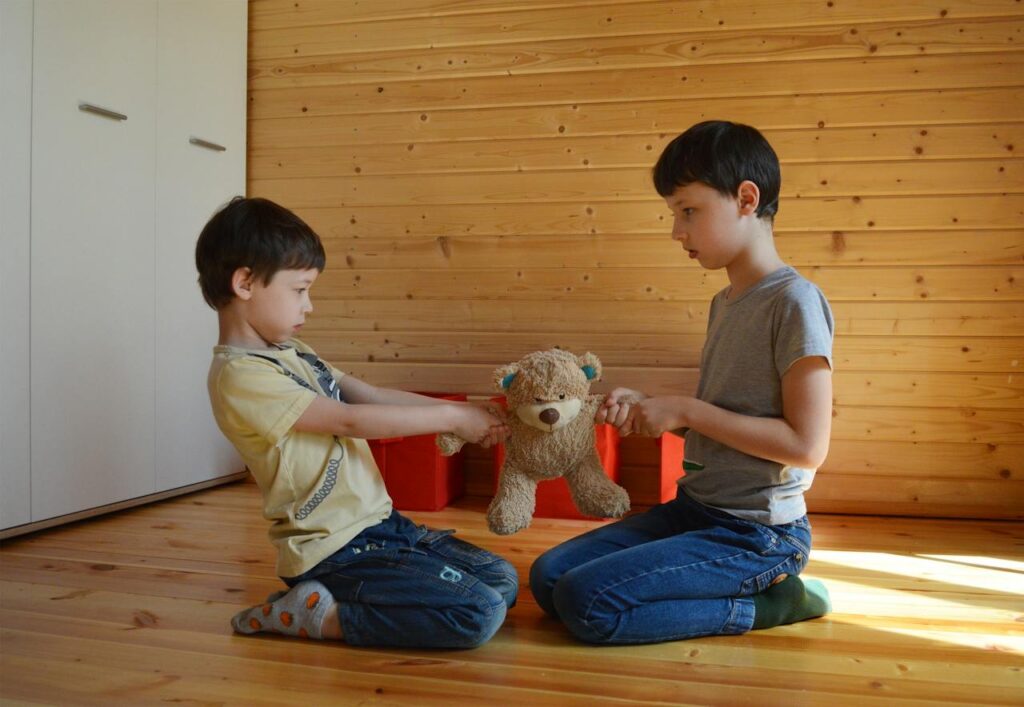What are the Behavioral problems in children?
Behavioral problems in children include misbehavior such as screaming, tantrums, and meltdowns to defiance. These wrong behaviors lead to parents being ashamed in front of people because of their child’s misbehavior. It’s normal for children to exhibit certain behaviors as they develop, but it’s important to address them before they turn into unacceptable habits.
Unacceptable behaviors in children
Interrupting you when you speak When your child interrupts your speech, he is in a state of overexcitement and believes that what he wants to say is very important without taking into account the importance of what others are saying. Therefore, you should not allow your child to interrupt your speech. Knowing that the child will not focus on you not allowing him to interrupt and will repeat it several times. Therefore, you must create a common language between you and him. For example, when you need to make a call or talk to another person about an important topic, tell him that you need calm and make him do any activity that will attract his attention to distract him. Stubbornness There is a percentage of no less than 10% of children under the age of 16 who have behavioral problems characterized by stubbornness, where they show anger quickly over the slightest reasons. They also love arguments and frequent discussions with adults and families, and they show chaos and disobedience to orders. Some children may also be happy to annoy those around them and annoy them with their actions on an ongoing basis. He also does not take responsibility for his mistakes and attributes them to others. Very violent gameplay Rough play is one of the most common things among children, but it is an important issue that must be paid attention to, according to the Parents website. When your child plays rough with his friends or siblings, you must intervene and not ignore the aggressive acts. Because if you do not intervene, this harsh behavior can become an ingrained habit for your child. The child may believe that harming others is acceptable. Therefore, you must talk to your child about the importance of not harming others and not accepting abuse against himself. If the action is repeated, you must end the game immediately. Lying This problem generates great concern among parents who lose confidence in their children. It is a very frequent behavioral problem among children. Children may often resort to lying because of their fear of punishment, so you must teach your child to speak with credibility by not following harsh behavior in punishment. Also, do not lie, be an honest role model in front of them. Rude behavior Parents may encounter impolite behavior, such as the child starting to roll his eyes up and down or using an unpleasant tone of voice. These behaviors are due to watching older children behave in these rude behaviors. Parents may think that it is an age stage and that these behaviors are fleeting. But the truth is that if you ignore his action, he may continue to do it, so you must express your annoyance with this action and show that you noticed this behavior and that it is unacceptable. Hyperactivity and attention deficit Male children are more exposed to this problem than female children, and 50% of children are affected by it. In this case, the child shows a lack of attention and concentration and a lack of concern for instructions and rules. He also faces difficulty in completing the tasks and duties assigned to him and shows impulsiveness and haste in acting and speaking with others. Pretend not to hear you If you repeatedly ask your child to do something and he does not listen to what you say and confronts her with indifference, this is a problem that you should not ignore. Because in this case, you may raise a child who is defiant and controlling. Therefore, to make sure that your child does what you ask of him. Go to him and tell him what you want, and do not talk to him from afar. Make sure to make eye contact, and if your child does not respond to your commands, you must impose an immediate punishment on him. 
Treatment of behavioral disorders in children:
Treating behavioral disorders in children is effective, as these behaviors are difficult to treat when your child grows older. Therefore, you should start from a young age through the following methods: Family therapy You can practice the correct ways to deal with children with bad behavior. By reading books or even watching educational videos so that the problem does not worsen from a young age. Help Your child solve his problems in the correct ways, assign them tasks, and reward positive behavior. You must be gentle in punishing your child so that these behavioral problems do not worsen. Community treatment Train your child on how to deal with his friends and siblings and not to use violence. In addition to respecting adults’ time and not interrupting conversations or behaving rudely with adults and children. In return, tell him about cooperating in playing and having fun without quarrels.



